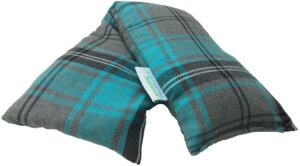Neck pain is common in pregnancy and often due to changes in sleep position and increased tension in the muscles surrounding the neck and head. Neck pain can also be linked with headaches.
Symptoms:
-
Pain can be central in the neck or down one or both sides.
-
The pain can also be felt in the upper shoulder region (next to the neck).
-
Pain often builds throughout the day and is worse when looking all the way to the right or left.
-
Pain can often be more pronounced when trying to sleep or when waking in the night / morning.

Causes:
-
Change in posture
-
Change in hormones adding to increased laxity / movement in joints
-
Previous history of neck and or upper back pain
-
Change in sleep positions / lack of sleep
-
Stress
Here is what the evidence says about the treatment options:
Specific neck Pillows
Studies indicate that contoured or ergonomic pillows, which are designed to support the natural curve of the neck, can be effective in reducing neck pain. It’s hard to find a general consensus on specific shape or design of the pillow (without manufacturer bias), but we found some evidence that microfiber pillows with neck support are more effective in helping neck pain and a firm pillow with neck support was better for cervical alignment and myofascial release. This study (2021) also reported that ‘The use of spring and rubber pillows are effective in reducing neck pain’.
The pillows that we would recommend based on this evidence are:
This pillow by Ecosafeter (linked here)
and this pillow by Elviros (linked here)
Trigger point release balls
Evidence shows that dry needling and trigger point release is effective in treating neck pain. Dry needling would involve booking in with your local Physiotherapist (who is a registered acupuncturist).
You can carry out your own trigger point release using a specific balls to relieve the tension in the muscles. Symptom relief can be quite immediate with this treatment.
Check out this video for a great ‘how to’ guide.
The balls we would recommend are by Beenax (linked here)
Tape
Evidence does support the use of Kinesio-taping (linked here) for neck pain. It has been studied in great detail and although the benefits are somewhat minimal, it is better than no treatment at all (and simple to do). Have a look at this video for a simple application technique.
The tape is really easy to apply, you just need a partner or friend to help you with the application. The tape we use is this one (link to tape here).
Heat
If the neck is aching a lot of the time (even at rest), then heat can help to relax the muscles and can be a great alternative to pain killers.
Options are something simple like a wheat bag (here is the link to ones we’d recommend).
or you could get something a bit more specific and long lasting (heat-wise) like the below (link here).
TENS
Evidence suggests that TENS can be helpful for neck pain but mainly when combined with other treatment modalities (such as physiotherapy or exercises). There are many different TENS machines available to buy, so if you are thinking of TENS as a treatment option then look for something that is specific for your problem.
We like this one by Comfytemp (link here)
Yoga
Evidence suggests that yoga can relieve neck pain intensity, improve pain-related function and increase the range of movement available, whilst also boosting your mood.
There are lots of Online Yoga programmes available, have a look at our Top 5 here (and why we love them)! You can also read our blog on how yoga can help in other ways.
Exercise tips
Just because your neck hurts, doesn’t mean that you shouldn’t move it. Try to continue moving as normally as possible. Stretch through all ranges of motion (turn to the right and left, look up and down and tilt right ear to shoulder and same to the left).

What symptoms to watch for with neck pain.
See your healthcare practitioner or go to A&E if you have any of the following symptoms:
-
Dizziness
-
Problems with your speech or swallowing
-
Any episodes of fainting
-
Any double vision
-
Fever / chills and a new headache / sensitivity to light
-
Pain worse when lying flat / at night
-
Neck pain following trauma – i.e. a car accident
-
Numbness / pins and needles in your arms and or legs
-
Weakness or loss of control of your arms and or legs
-
Any form of incontinence that comes with the neck pain
-
Night sweats (common in pregnancy but mention if you are concerned about your neck pain also)
-
Weight loss







